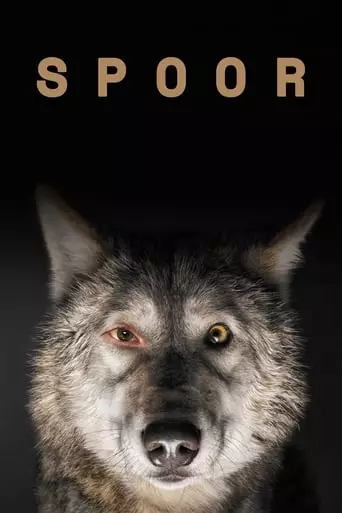A story about Janina Duszejko, an elderly woman, who lives alone in the Klodzko Valley where a series of mysterious crimes are committed. Duszejko is convinced that she knows who (or what) is the murderer, but nobody believes her.
Spoor (original title: Pokot) is a 2017 Polish crime drama directed by Agnieszka Holland, based on the novel Drive Your Plow Over the Bones of the Dead by Olga Tokarczuk. The film follows Janina Duszejko, a reclusive retired engineer and astrologer living in a remote Polish village near the Czech border. Janina becomes entangled in a series of mysterious deaths among local hunters, which she believes are the result of retribution by animals seeking justice for their slain kin. As she investigates, Janina confronts the village’s patriarchal and speciesist attitudes, challenging societal norms and the exploitation of nature. The narrative blends elements of a murder mystery with philosophical reflections on humanity’s relationship with the natural world.
Main Themes
- Environmentalism and Animal Rights: The film explores the ethical treatment of animals and the environmental impact of human activities, highlighting the interconnectedness of all living beings. Janina’s advocacy for animal rights serves as a central theme, questioning the morality of hunting and the exploitation of nature.
- Feminism and Gender Roles: Spoor critiques traditional gender roles and the marginalization of women in society. Janina’s character challenges patriarchal norms, embodying strength, independence, and resilience in the face of societal expectations.
- Justice and Retribution: The film delves into themes of justice, both human and divine, as Janina seeks to uncover the truth behind the deaths. It raises questions about the morality of taking justice into one’s own hands and the consequences of such actions.
- Isolation and Alienation: Janina’s solitary life in the remote village reflects themes of isolation and alienation. Her unconventional beliefs and lifestyle set her apart from the community, highlighting the challenges of living authentically in a conformist society.
Impact of the Movie
Spoor received critical acclaim for its compelling narrative and strong performances, particularly Agnieszka Mandat-Grabka’s portrayal of Janina. The film won the Bear for Best Script at the 67th Berlin International Film Festival and was nominated for the Golden Bear. It has been praised for its thought-provoking themes and its ability to blend genres, offering a unique cinematic experience. Critics have highlighted its environmental and feminist messages, noting its relevance to contemporary social issues.
7 Reasons to Watch Spoor (2017)
- Compelling Lead Performance: Agnieszka Mandat-Grabka delivers a powerful performance as Janina, bringing depth and authenticity to the character. Her portrayal captures the complexity of Janina’s beliefs and her resilience in the face of adversity.
- Thought-Provoking Themes: The film tackles pressing issues such as environmentalism, animal rights, and gender equality, encouraging viewers to reflect on their own beliefs and societal norms. Its exploration of these themes is both timely and impactful.
- Unique Genre Fusion: By blending elements of a murder mystery with philosophical musings, Spoor offers a fresh take on the crime drama genre. This fusion keeps the narrative engaging and unpredictable, providing a unique viewing experience.
- Stunning Cinematography: The film’s cinematography captures the beauty and harshness of the Polish countryside, immersing viewers in its atmospheric setting. The visual storytelling enhances the film’s thematic depth and emotional resonance.
- Strong Direction: Agnieszka Holland’s direction ensures a cohesive and engaging narrative, skillfully balancing the film’s various elements. Her experience and vision are evident in the film’s pacing and tone, contributing to its critical success.
- Critical Acclaim: Spoor has been recognized with several awards, including the Bear for Best Script at the Berlin International Film Festival. Its critical acclaim underscores its quality and the importance of its themes.
- Cultural Relevance: The film’s exploration of societal issues resonates with contemporary audiences, sparking discussions on environmental and social justice. Its relevance to current global concerns makes it a significant and timely piece of cinema.
How Will You Feel After Watching Spoor (2017)?
After watching Spoor, you may experience a range of emotions, from contemplation to empowerment. The film’s exploration of environmental and feminist themes may inspire a deeper appreciation for nature and a heightened awareness of social issues. Janina’s unwavering commitment to her beliefs, despite societal opposition, can evoke feelings of admiration and introspection. The film’s atmospheric setting and compelling narrative may leave you reflecting on the complexities of justice, morality, and human connection. Overall, Spoor offers a thought-provoking and emotionally resonant experience that encourages viewers to question societal norms and consider their own values.

